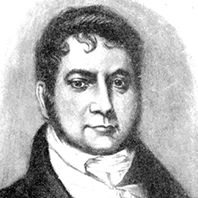Pinkney, William

Pinkney, William (1764-1822) Attorney-General: William Pinkney was born on March 17, 1764, in Annapolis, Maryland. Although his father was an English loyalist during the Revolutionary War, young Pinkney joined the patriot cause. Since his childhood education was sketchy because of the turbulence of the times, he studied diligently as a young man to make up for the deficits. Initially headed toward a medical career, he decided to pursue law, and was admitted to the bar in Maryland in 1786. After setting up a legal practice, he was chosen to attend the 1788 Maryland convention to ratify the US Constitution. He served in the state legislature until 1792, when he joined the executive council of Maryland. In 1796, Pinkney began his international diplomatic career when President George Washington appointed him a commissioner for the United States. Working under Jay's Treaty of 1794, Pinkney was to determine American merchant claims for compensation for losses and damages due to the actions of the British government. In 1804, he returned from England and resumed his legal practice in Maryland. The next year, he was appointed Maryland's attorney general. Pinkney returned to diplomatic duty in 1806, when he and James Monroe were sent to England as commissioners to discuss the aggressive British violations of the United States' rights of neutrality. After Monroe retired in 1807, Pinkney remained as the resident American Minister in London until President James Madison recalled him in 1811. Upon his return to Maryland, Pinkney was elected to the state Senate. At the end of the year, President Madison appointed him Attorney General of the United States. An ardent supporter of the War of 1812, he wrote in favor of the war and was wounded in the Battle of Bladensburg as he led a company of riflemen. Resigning as Attorney General in 1814, he was elected to the US Congress in 1815, but resigned in 1816 to take up a post as Minister to Russia and Special Envoy to Naples. Pinkney stayed abroad for two years, resigned in 1818, and returned to a legal practice in 1818, and went back to practicing law in Maryland. For the next four years, Pinkney became involved with most of the major US Supreme Court cases. Elected to the US Senate in 1820, he was active in debate over the admission of Missouri to the Union. Pinkney died from illness on February 25, 1822.
